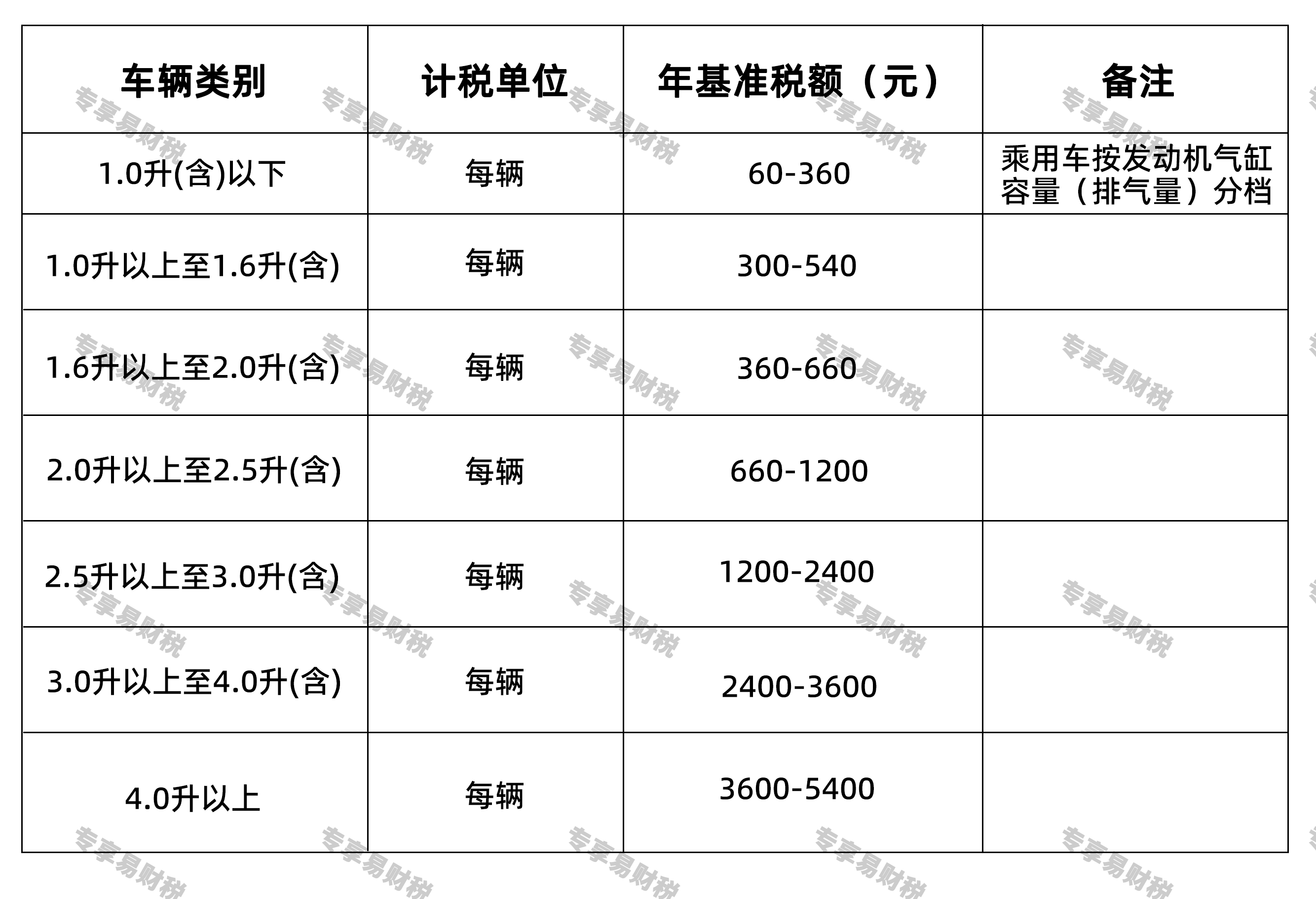- Release Date:2025-09-16 08:00:19
- Reading volume: 0
Zhuanxiang Yi Finance & Taxation provides a comprehensive analysis of vehicle and vessel tax to help enterprises operate in a lawful and compliant manner while fully benefiting from tax incentives. Zhuanxiang Yi Finance & Taxation helps you avoid hidden pitfalls! We assist entrepreneurs in conducting operations compliantly and mastering essential financial and tax survival guides—saving money while staying compliant!
01 The Definition and Tax Law Basis of Vehicle and Vessel Tax
Vehicle and vessel tax refers to a property tax calculated and levied on vehicles and vessels that should be registered with the public security, transportation, agriculture, fishery, military and other administrative departments in accordance with the law within the territory of China, based on their types, in accordance with the prescribed tax base and annual tax rate standards.
The main tax law basis for vehicle and vessel tax is the "Vehicle and Vessel Tax Law of the People's Republic of China", which came into effect on January 1, 2012. In addition, the "Regulations on the Implementation of the Vehicle and Vessel Tax Law of the People's Republic of China" has made detailed provisions on the specific collection and administration of vehicle and vessel tax.
02 Scope of vehicle and Vessel tax collection, taxpayers and applicable tax rates
The scope of vehicle and vessel tax collection includes vehicles and vessels registered within the territory of China, which is specifically divided into:
Passenger car
Commercial vehicles
Trailer
Other vehicles
Motorcycle
Ship
The taxpayer of vehicle and vessel tax is the owner or manager of a vehicle or vessel.
The applicable tax rate for vehicle and vessel tax is determined based on factors such as the type and displacement of the vehicle or vessel. The specific rate is determined by the people's government of the province, autonomous region or municipality directly under the Central Government in accordance with the tax rate range stipulated in the "Vehicle and Vessel Tax Item and Rate Table" attached to the Vehicle and Vessel Tax Law and the provisions of The State Council.

03 Several main tax rates of vehicle and vessel tax
According to the Vehicle and Vessel Tax Law, the following vehicles and vessels are exempt from vehicle and vessel tax:
1.Fishing and aquaculture vessels;
2.Vehicles and vessels exclusively used by the military and armed police forces;
3.Police vehicles and vessels;
4.Vehicles and vessels of foreign embassies and consulates in China, representative offices of international organizations in China and their relevant personnel that are exempt from tax in accordance with the law;
5.New energy vehicles (adjusted in accordance with national policies);
6.Motorcycles, three-wheeled vehicles and low-speed cargo vehicles owned by rural residents and mainly used in rural areas;
7.Vehicles and vessels that are facing tax reduction or exemption due to severe natural disasters and other special reasons.
04 Several main tax rates of vehicle and vessel tax
The vehicle and vessel tax adopts a fixed tax rate, that is, a fixed tax amount is levied on the taxable objects. The main tax rate classifications are as follows:
Passenger vehicles: Taxes are levied in different tiers based on engine displacement. The larger the engine displacement, the higher the tax amount
Commercial vehicles: Passenger vehicles are taxed per vehicle, and freight vehicles are taxed per ton of curb weight
Trailer: Calculated at 50% of the tax amount for trucks
Motorcycles: Taxed on a per-unit basis
Ships: Motor vessels are taxed at the net tonnage per ton, while yachts are taxed at the length of the hull per meter
05The proportion of vehicle and vessel tax in all tax revenue in China and its significant position in China's fiscal revenue
As an important component of the property tax system, the vehicle and vessel tax, although accounting for a relatively small proportion of the total national tax revenue (about 0.5% to 1% of the total national tax revenue), holds a certain position in local fiscal revenue. The vehicle and vessel tax is a local tax, and all its revenue belongs to the local authorities. It plays a significant role in increasing local fiscal revenue, regulating wealth distribution, and promoting the rational allocation of vehicles and vessels.
With the continuous growth of the number of automobiles in our country, the tax scale of vehicle and vessel tax has also been steadily increasing and has become one of the stable sources of local fiscal revenue, providing financial support for local public services and infrastructure construction.
06The importance of paying taxes in accordance with the law
As a legally mandated tax by the state, the vehicle and vessel tax is strictly levied. Taxpayers should pay the vehicle and vessel tax on time; otherwise, they will face late payment penalties or even fines. According to the regulations, the vehicle and vessel tax is declared and paid annually, and taxpayers should pay it together when purchasing the compulsory traffic accident liability insurance for motor vehicles.
Paying taxes in accordance with the law is the obligation of every citizen and enterprise. Cultivating the awareness of respecting tax laws and paying taxes in accordance with the law not only helps maintain the stability of national fiscal revenue but also serves as an important foundation for building a trustworthy society. Guangzhou Exclusive Easy Finance and Taxation Company reminds you to complete the declaration and payment of vehicle and vessel tax on time to avoid unnecessary economic losses and legal risks due to delay.

